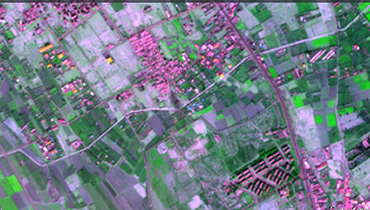2019- PROPUESTA METODOLÓGICA PARA EL DESARROLLO DE EMPRENDIMIENTOS PRODUCTIVOS PROMOVIDOS POR MUJERES DE ESCASOS RECURSOS. APLICACIÓN AL VALLE DE CAÑETE – PERÚ
| Doctorando: |
Milagros Del Pilar Panta Monteza |
| Nacionalidad: | Perú |
| Universidad: | Universidad Politécnica de Madrid |
| Facultad/Escuela: | E.T.S.I. Agronómica, Alimentaria y de Biosistemas |
| Año: | 2019 |
| Calificación: | Sobresaliente |
| Director: | José Luis Yagüe blanco |
| Enlace: | Texto completo |
Abstract:
Female entrepreneurship continues to be a very poorly developed area in Latin America, which urges different organizations to know their characteristics, types, forms of access, understanding of the subject, motivation at moment to start up a micro entrepreneurship, and above all, the contribution to economic growth and poverty reduction.
In general, the most traditional enterprises, characterized by informality, low levels of human capital and productivity, poor technological infrastructure, no social protection and difficulty accessing financial resources, are those that tend to generate self-employment and represent the majority of entrepreneurial initiatives in Peru. In this context, is necessary a great effort by the state and civil society to overcome the deficiencies, especially when women's participation in the labor market is increasing. While it is true, there are still limitations on accessing the benefits of development and, consequently, on improving the income of women, one way of accessing decent work is to promote their enterprises.
This research focus in the problem of the woman in the Cañete Valley to promote of new ventures, which are characterized by their lack of empowerment, origin is in their low educational levels and their lack of access to credit. To this end, a methodology that is tested with 4 projects financed with International Cooperation funds that have in common the training and credit components is designed, proposed and applied. The institution that executes has vertebral role in local development and supports proposals such as those the case study. The methodology that is characterized to be articulated, participatory, sequential and by phases, produces interactions throughout the process and identifies through filters a female profile with potential and intention to undertake, articulating credit with financing in training and investment (binomial c-c) from access. The phases don’t guarantee that all women successfully complete the process, but it is necessary for many with potential to achieve it.
Finally, the validation of the methodology carried out 5 years after the end of the interventions, shows that the binomial c-c influences female entrepreneurship, improves the level of empowerment of women, their ventures report greater sustainability and that the described methodology allows identifying and select women with entrepreneurial potential throughout the process.
Resumen:
El emprendimiento femenino continúa siendo un área muy poco desarrollada en América Latina, lo que insta a distintos organismos a conocer sus características, tipos, formas de acceso, comprensión del tema, motivación al momento de emprender y, sobre todo, el aporte que pueden realizar al crecimiento económico y a la reducción de la pobreza.
Por lo general, los emprendimientos más tradicionales, caracterizados por la informalidad, bajos niveles de capital humano y productividad, deficiente infraestructura tecnológica, nula protección social y con dificultad para acceder a recursos financieros, son aquellos que suelen generar autoempleo y representan la mayoría de las iniciativas emprendedoras en el Perú. En este contexto, se hace necesario un gran esfuerzo del estado y sociedad civil para superar las deficiencias, más aún cuando la participación femenina en el mercado de trabajo va en aumento. Si bien es cierto que todavía persisten limitaciones para acceder a los beneficios del desarrollo y en consecuencia a una mejora de los ingresos de las mujeres, una forma de acceso al trabajo digno es promover sus emprendimientos.
Esta investigación aborda el problema que atraviesa la mujer en el Valle de Cañete en el fomento de nuevos emprendimientos, caracterizada por su falta de empoderamiento, cuyo origen está en sus bajos niveles educativos y su falta de acceso al crédito. Para ello se diseña, propone y aplica una metodología que se ensaya con 4 proyectos financiados con fondos de la Cooperación Internacional que tienen en común los componentes de capacitación y crédito. La institución que la ejecuta cumple un rol vertebrador en el desarrollo local y da soporte a propuestas como las del caso de estudio. La metodología que se caracteriza por ser articulada, participativa, secuencial y por fases, produce interacciones en todo el proceso e identifica a través de filtros un perfil femenino con potencial e intención de emprender, articulando el crédito con la financiación en capacitación e inversión (binomio c-c) desde el acceso. Las fases no garantizan que todas las mujeres culminen con éxito el proceso, pero sí es necesario para que muchas con potencial lo consigan. Por último, la validación de la metodología realizada a 5 años de finalizadas las intervenciones, muestra que el binomio c-c influye en el emprendimiento femenino, mejora el nivel de empoderamiento de las mujeres, sus emprendimientos reportan mayor sostenibilidad y que la metodología descrita, permite identificar y seleccionar mujeres con potencial emprendedor a lo largo del proceso.













